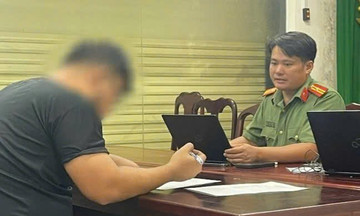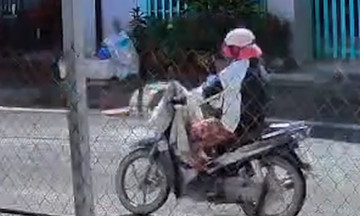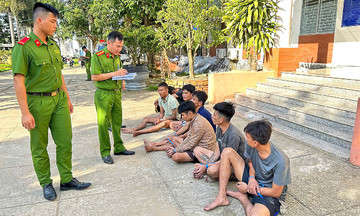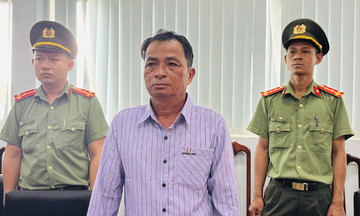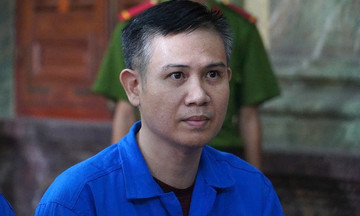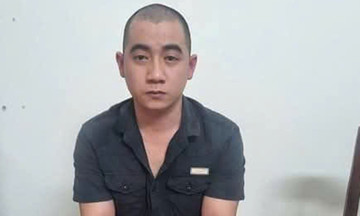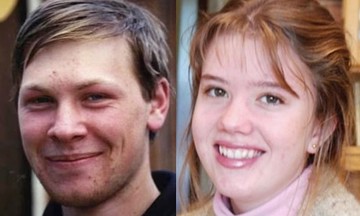In 4/2024, the Changning District Court (Shanghai) heard a case involving a will dispute. The plaintiff, Mr. Liu, had no blood relation to the deceased, Ms. Wang, yet claimed the entire estate based on her will, suing her biological children and grandson.
The disputed will
Liu claimed Ms. Wang divorced her husband at a young age and had a strained relationship with her children. She resided in a nursing home for an extended period, suffering from myelopathy. Liu, trained in medicine since childhood, frequently offered medical consultations to the elderly at the nursing home's gate. Due to his effective treatments, Ms. Wang adopted him, and they lived together from then on.
On 2/11/2023, the 91-year-old Ms. Wang drafted a will in the presence of two lawyers, stipulating that Liu would inherit her entire estate upon her death. Over a month later, she fell at home and died in the hospital. Liu asserted his right to the entire inheritance based on the will.
However, Ms. Wang's grandson, Xiao Lin, told a different story. He stated his father consistently cared for his grandmother, only placing her in the nursing home in 2016 due to her declining health, and continued visiting her occasionally. By 2019, his father's own health deteriorated, preventing further visits. He passed away in 2020.
After his father's funeral, Lin assumed responsibility for his grandmother's care at the nursing home. However, he was informed that Liu, the "adopted son," had taken her away in late 2019, purportedly to "visit relatives in Shandong." He hadn't heard from her since.
"I inquired with relatives in Shandong and learned they had indeed visited Ms. Wang's niece. But we've had no contact with them since. I tried adding Liu on WeChat multiple times, but he didn't accept," Lin said. He highlighted that Ms. Wang had notarized a will in 2014, bequeathing her property on Zunyi Road to her grandson (Lin) and her bank savings to her children.
Judge Xu Li of the Family and Juvenile Court, Changning District Court, noticed several suspicious points. The witness statement and video from the will signing showed Ms. Wang referring to Liu as her eldest son. She also stated: "My youngest son (Lin's father) just passed away in 2023, and my other children abandoned me. My eldest son previously served in international peacekeeping forces, traveling to over 70 countries. He has no home, so I'm leaving him everything...".
The witnessing lawyer stated Liu did not disclose their lack of biological relation.
In court, Liu denied ever serving in peacekeeping forces or traveling to over 70 countries. He claimed Ms. Wang heard rumors from other patients. He explained his refusal of Lin's WeChat requests by claiming unfamiliarity with the app. He also said Ms. Wang's phone broke after arriving in Shandong, and she changed her number, preventing contact.
Unraveling the lies
The peculiar will, Liu's mysterious identity, and the conflicting testimonies raised Judge Xu Li's suspicions. However, with Ms. Wang deceased, further evidence was needed to verify the will's authenticity.
Ms. Wang's medical records from 22/12/2023 noted: "The patient was unconscious and struggled to breathe for six hours. Six hours prior, the family found her unresponsive, foaming at the mouth, and struggling to breathe." Yet, the hospital received the emergency call only at 10:54, the medical team arrived at 11:05, and she was declared dead at 11:40.
"This means after discovering Ms. Wang unconscious, Liu delayed calling for help for hours, significantly delaying her emergency care," Judge Xu Li analyzed.
Bank statements revealed further evidence of potential "theft." Ms. Wang received a monthly pension exceeding 10,000 CNY. About a year before her death, over 200,000 CNY from her long-term deposit accounts was gradually transferred to checking accounts, with Liu conducting all transactions. This money was then withdrawn via ATM, always reaching the daily limit, often over consecutive days.
Confronted with the evidence, Liu changed his story, claiming Ms. Wang gifted him the money, but he couldn't provide proof. Regarding the pension funds, he claimed "it was all spent on Ms. Wang's medication" but failed to produce receipts.
"If she wanted to gift Liu money, Ms. Wang could have gone to the bank teller directly instead of frequent ATM withdrawals," Judge Xu Li noted.
The judge also highlighted Ms. Wang's substantial pension contrasted with Liu's unstable income. During their time together, Liu depleted her savings. Even excluding the real estate, he benefited significantly from her financially, making it unlikely his assistance was purely altruistic.
A disturbing detail emerged: after Ms. Wang's death, Liu didn't inform her family or hold a funeral but scattered her ashes on a mountain, a morally reprehensible and unreasonable act.
Will declared invalid
Based on the investigation, the Changning District Court ruled that while Ms. Wang's will was formally legal, Liu fabricated his identity to gain her trust and sympathy. He deliberately severed her contact with her family, creating a false sense of abandonment. A will must reflect the testator's true wishes, and any will influenced by deception is invalid. Therefore, Ms. Wang's will was deemed void.
Regarding the estate, Liu's care for Ms. Wang was based on unlawful actions, disqualifying him from inheritance. Ms. Wang's property would go to Lin per the 2014 notarized will. The money Liu claimed as a gift lacked evidence, thus the over 200,000 CNY he withdrew was considered part of the estate. Without a valid will for this sum, Ms. Wang's surviving children and Lin would inherit it. The court accepted Lin's proposal for equal division.
The court dismissed all of Liu's claims and ordered him to return the over 200,000 CNY. Liu appealed, but the appellate court upheld the original ruling on 31/7.
Following the case, the court recommended nursing homes improve discharge procedures to prevent elderly residents from being lured away by strangers and enhance communication with families, providing timely updates.
The court also urged law firms to improve lawyer training and management, emphasizing the need to verify relationships between testators and beneficiaries during will preparation and remain vigilant against unusual behavior.
The judge advised the elderly to be wary of strangers' sweet talk. When making significant decisions, such as estate planning, they should consult with their children and relatives to avoid irreparable losses due to misplaced trust.
Children and family members should regularly visit and care for their elderly parents, paying attention to their physical, mental, and daily needs. Especially for those in nursing homes, maintaining contact and frequent visits are crucial to understand their situation and relationships, preventing opportunities for exploitation.
Tue Anh (*Legal Daily*)



